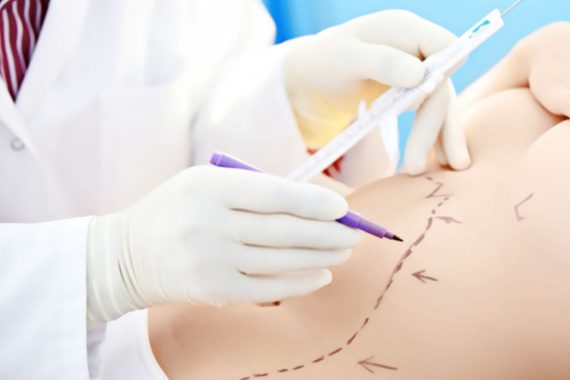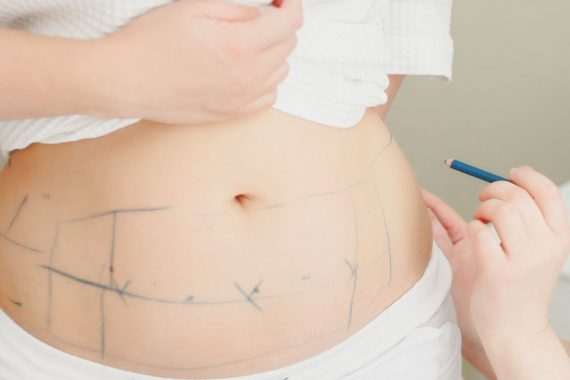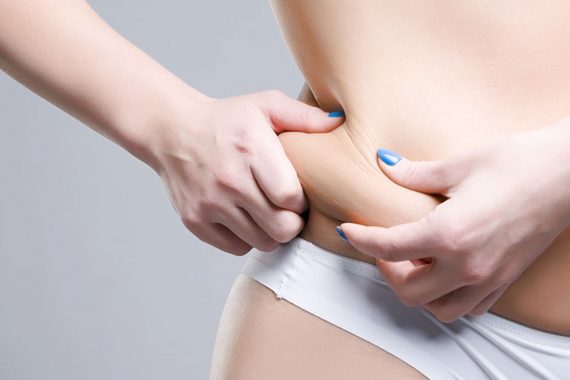Liposuction

Liposuction is a cosmetic procedure that allows you to get rid of fat that resist diet and exercise. The procedure may be combined with other plastic surgery procedures, including facelift.
Liposuction is a surgical procedure and is basically not a weight-loss method, even if the result is weight loss. Liposuction allows not only removal of abnormal regional fat accumulation, but also recontouring of the body part, where excess fat is suctioned.
Liposuction is a surgical procedure that involves risks. Therefore, your overall health should be good before proceeding to liposuction. It is important that you have ideal body weight, healthy and elastic skin and do not smoke.
Liposuction is not recommended for people with blood circulation disorder, heart disease, diabetes mellitus or weak immune system.
If you want to have liposuction, please consult our plastic surgeons for techniques, expectations, and potential risks.

What Areas Does The Procedure Treat?
Surgeons mostly perform liposuction in areas where fat accumulates majorly. It is usually the abdominal wall, including the hips, the lower limbs, the back, but also the arms and chin. Area selection is always upon personal consultation with a plastic surgeon.
How Does Liposuction Take Place?
The main principle of liposuction is fat deposits suction. Our doctors perform the procedure in general or local anesthesia. Scars after the surgery are small; usually 5 – 10 mm long. Firstly, the surgeon injects a tumescence solution through the cannula and then suctions the fat from the area. After the liposuction, he closes the surgical wounds by the dissolvable sutures, so the patient does not need to come back for the stitches removal.

Preparation for Operation
- You should stop taking aspirin and its derivatives one week before the operation. (Do not stop taking the medication you permanently use without consulting your doctor).
- It is recommended not to smoke for a while before and after the operation.
- Do not put on any makeup, do not use hair gel, wear comfortable clothes and leave your jewels at home before coming to the hospital for operation.
- Do not eat or drink anything 6 hours before the operation.
- Be present at the hospital about one hour before the operation.
- The photos of the area to be treated are taken
- When standing, the target areas are marked on the body.
- When you come to the room reserved for you, you may be given an oral drug if you want, it will relax you.
Surgery and early postoperative period
- You can go home in the same day after liposuction. However, it is recommended that you have a companion with you after the operation. You may be asked to stay at the hospital if too much fat is removed in the liposuction.
- The intended site will be marked and before and after photos will be taken to make comparisons.
- Although liposuction is performed under general anesthesia, local or regional anesthesia can be considered for minor procedures.
- Different techniques can be used for liposuction surgery. However, the common point of all is the use of a thin tube, called a vacuum-linked cannula, to absorb fat from your body.
- Tumescent liposuction is the most common technique. Your surgeon injects a solution that contains sterile saline, lidocaine and epinephrine into the area where the fat will be suctioned. This technique is accompanied by less bleeding, mild pain and ease of suction.
- In the ultrasound-assisted liposuction technique, sound wave energy is used to break up (emulsify) the cellular walls of the fat under your skin. In this technique, the solid fat is liquefied.
- Laser-assisted liposuction uses laser energy to liquefy the fat. The liquefied fat is suctioned using the cannula.
- You may feel pain and recognize swelling in the area, where fat is suction, after the surgery. Or, you may even notice bruising in skin of the region. These are expected symptoms that will spontaneously disappear within several weeks.
- Although you will feel minimal pain, your plastic surgeon will prescribe pain killer pills to manage the pain. Moreover, antibiotic can be prescribed to avoid a potential infection.
- You may be asked to apply compression bandage or wear tight garments, such as corset, depending on the body part, where liposuction surgery is performed. Here, the aim is to reduce swelling and provide support to the new contour of the region.
- Your plastic surgeon will inform you whether you need to be observed or you should stay in hospital.
- After you recover from anesthesia and you are ready to walk, you will be mobilized by or under supervision of our healthcare professionals.
- Before you are discharged, your plastic surgeon or another healthcare professional will inform you about the time interval that you should rest and the time that you can start non-strenuous exercises. Although routine daily life activities are allowed, your doctor will instruct you to avoid strenuous works for a particular time.
- It is substantially important to follow those instructions to facilitate recovery period and get the best outcome from the surgery. Therefore, please ask all your questions to your plastic surgeon before you leave the hospital.
- You should visit your plastic surgeon for follow-up visits that are scheduled before you are discharged.
- If you experience warmth and redness in your incision line or the surgical site, or if you have a fever or any symptoms that you think are due to surgery after you are discharged, contact your plastic surgeon immediately.
